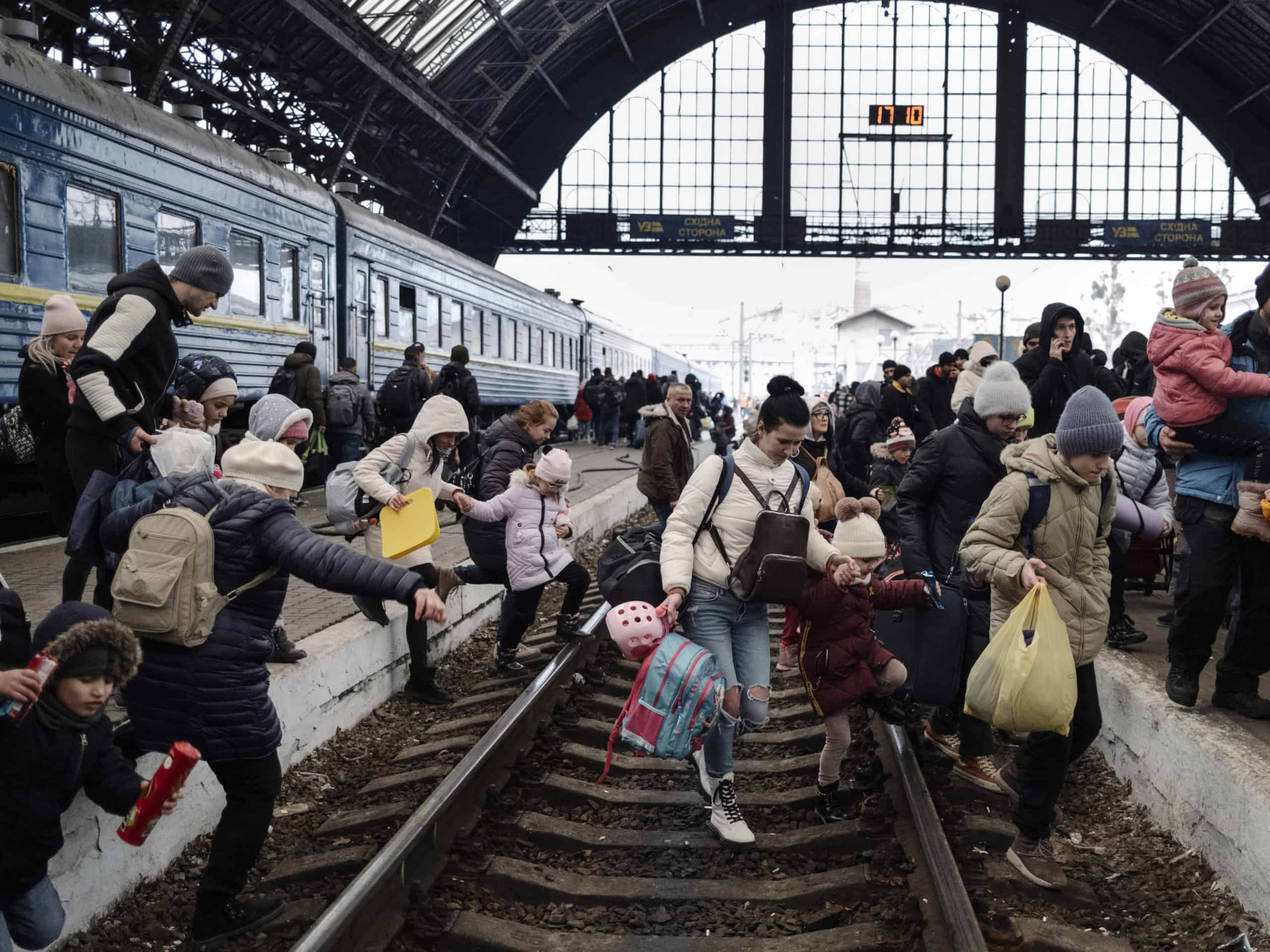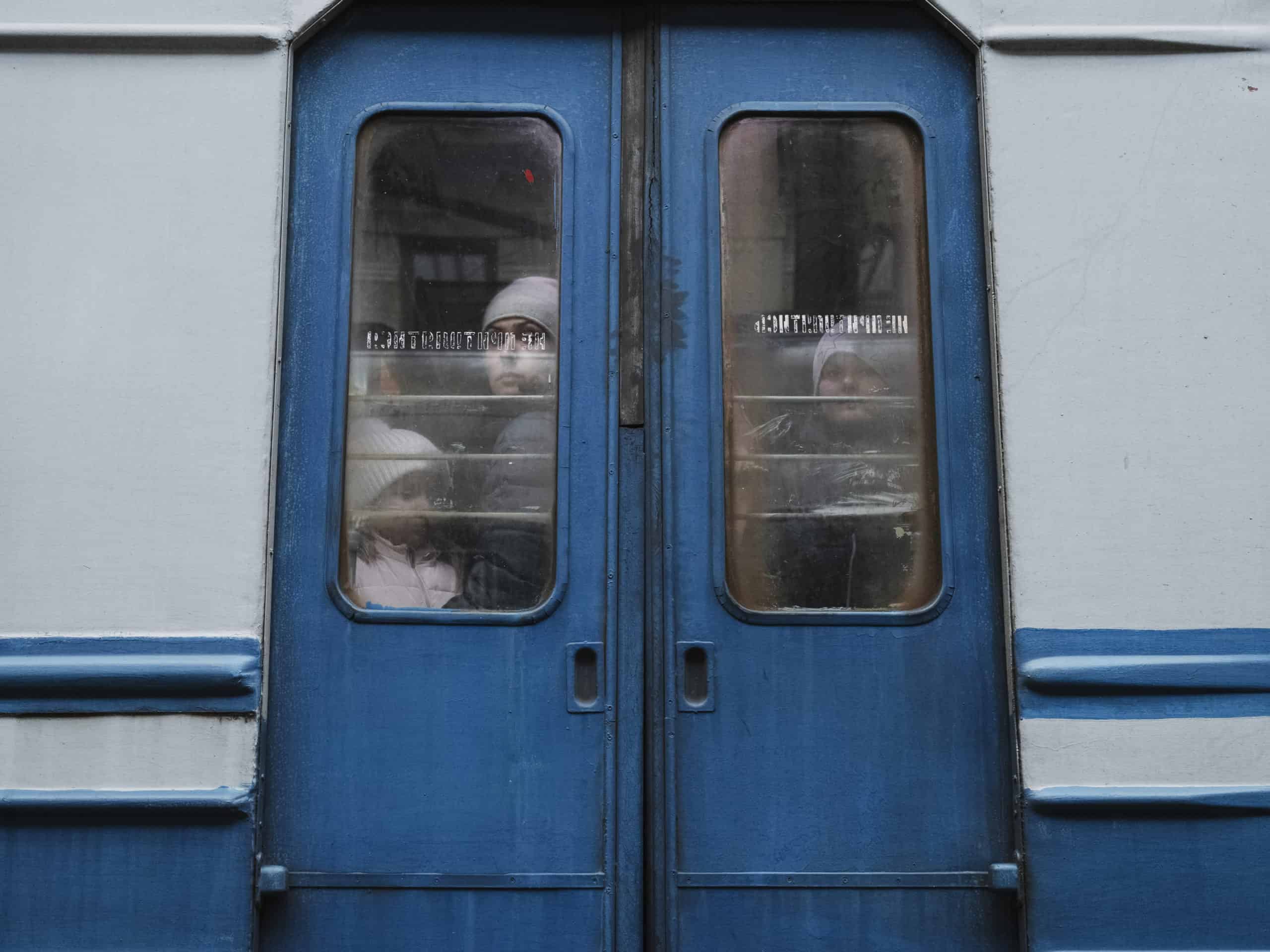While the number of deaths and injuries rises in Ukraine and hundreds of thousands of people seek refuge in neighbouring countries, Doctors Without Borders/Médecins Sans Frontières (MSF) is working to get staff and equipment into areas most affected by the Russian military offensive. Bérengère Guais, deputy head of emergency programmes in Paris, explains the challenges and difficulties of accessing the hardest-hit conflict zones.
How is MSF managing to work in Ukraine?
MSF has been present in Ukraine for many years, providing care for people affected by tuberculosis and HIV. So we already have national and international staff on the ground. Today, in the context of war, we have had to suspend these programmes and to reorient our activities to meet the medical needs generated by a large-scale military offensive. We are switching to an emergency intervention from a routine medical project. We, therefore, have to adapt and call on emergency specialists to work with the people affected by the conflict in the worst-hit areas. This is our priority at the moment.

What is the main challenge?
The most important challenge today is accessing the regions most affected by fighting. Since Monday 28 February we have had teams in all of Ukraine’s neighbouring countries – Poland, Moldova, Romania as well as in Russia and Belarus. Due to the chaotic situation on Ukraine’s borders, with hundreds of thousands of people fleeing the fighting, it is difficult to understand which borders crossings are the best to enter the country. We are looking to bring in equipment and staff – including surgeons – to back up the staff already on the ground and to initiate operations as quickly as possible.
How are you managing to get equipment and medicines into the country?
We are currently preparing medical equipment and medicine kits from our logistical bases, notably in Brussels and Bordeaux, which will transit through neighbouring countries before entering Ukraine. We are also purchasing goods and materials in Poland for some local associations who have informed us of a number of essential items that they lack.
How do you assess the needs on the ground?
The combat zones are moving quickly and changing hourly. It is important for us to have a good understanding of the dynamics of the offensive, to assess the needs, but also not to put our teams at risk. We have staff in the capital Kyiv and in several key cities such as Zhytomyr, Severodonetsk, as well as a network of medics in hospitals and health centres in multiple locations. They are enabling us to build a picture of the needs. In particular, we are gathering information about the number of people injured, their needs, and the capacity for care on the ground in order to build an appropriate medical response.
To receive supplies within Ukraine we are setting up storage space in the west of the country. Depending on developments and opportunities, we will try to set up warehouses in other areas to expand our capacity.
Are there medical posts? How is the referral of injured people being carried out? Is it possible for patients to be transferred from one hospital to another? In which hospital structures could we quickly start activities, especially surgical ones? These are the main questions we are asking ourselves and to which we are trying to get reliable, clear and detailed answers.

What support are you providing for refugees in border areas?
We have already donated essential items to a reception centre in Poland and we are working to scale up our response. We are planning to deploy medical support and increase the distribution of blankets and hygiene kits. But we are already seeing a lot of local and international solidarity with the refugees, meaning their needs are well covered for the moment. Our priority is therefore to take care of the injured in Ukraine.












